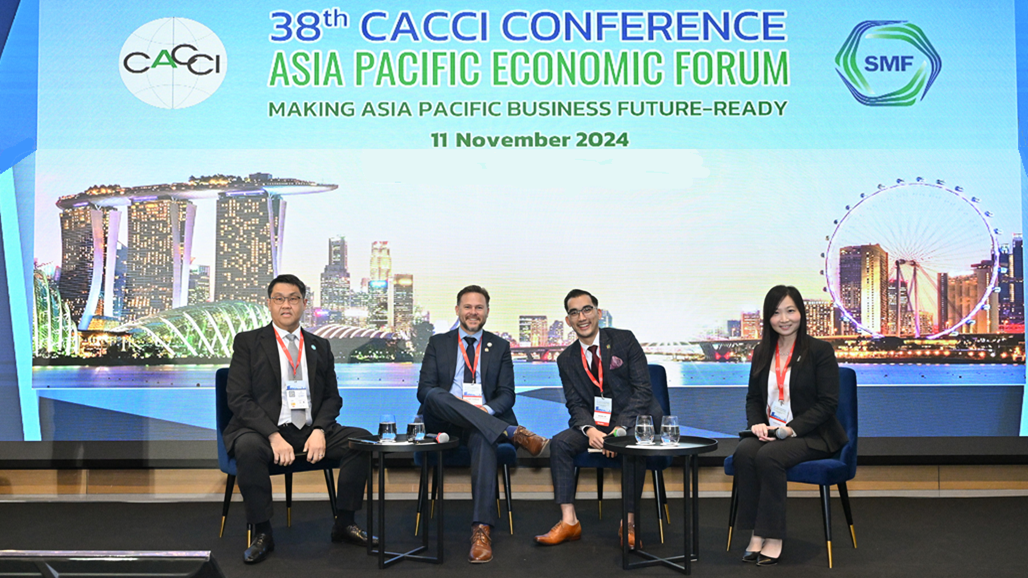Breakout Sessions
The session focused on the theme “Global Perspectives on SME Development and Effective Public and Private Sectors Cooperation in SME Development.”
Invited speakers and panelists elaborated on the policy environment in their respective countries that supports the promotion of SMEs, the measures taken by the private sector and the business community to encourage SME growth and development, and the collaborative efforts and initiatives between government and the private sector to facilitate the growth and development of SMEs.
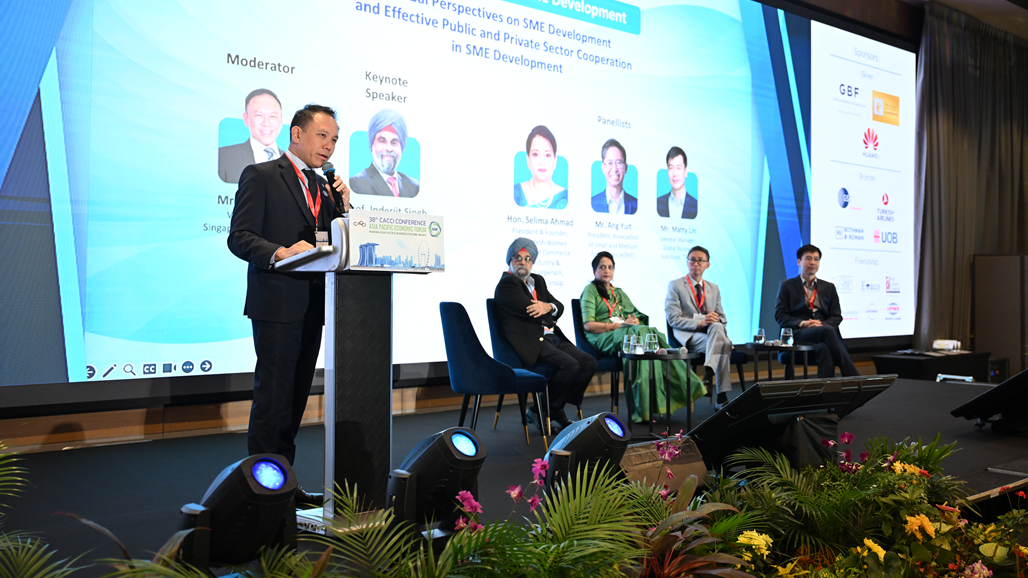
Focusing on the theme “Smart Agriculture for a Sustainable Future”, this session featured speakers and panelists who shared their perspectives on the transformative potential of modern agricultural practices and technologies to create a more resilient and sustainable food system in the Asia-Pacific region. They explored the integration of innovative technologies such as precision farming, artificial intelligence, and data analytics to enhance productivity, reduce environmental impact, and improve resource efficiency.
Recognizing the global challenges faced by the region’s economies, such as climate change, population growth, and resource scarcity, the speakers stressed the urgent need for sustainable agricultural solutions, highlighting the role of smart agriculture in mitigating climate risks, improving soil health, and conserving water. They addressed the pressing challenges of food security, climate change and rural development. They also emphasized the critical role of policy frameworks and financial investments in supporting the transition towards sustainable agriculture. The session discussions underscored the importance of fostering collaborations between governments, private sectors, and local communities to drive sustainable growth of the agricultural sector. A presentation was also made on navigating the Muslim market via understanding culture and exploring strategies for success
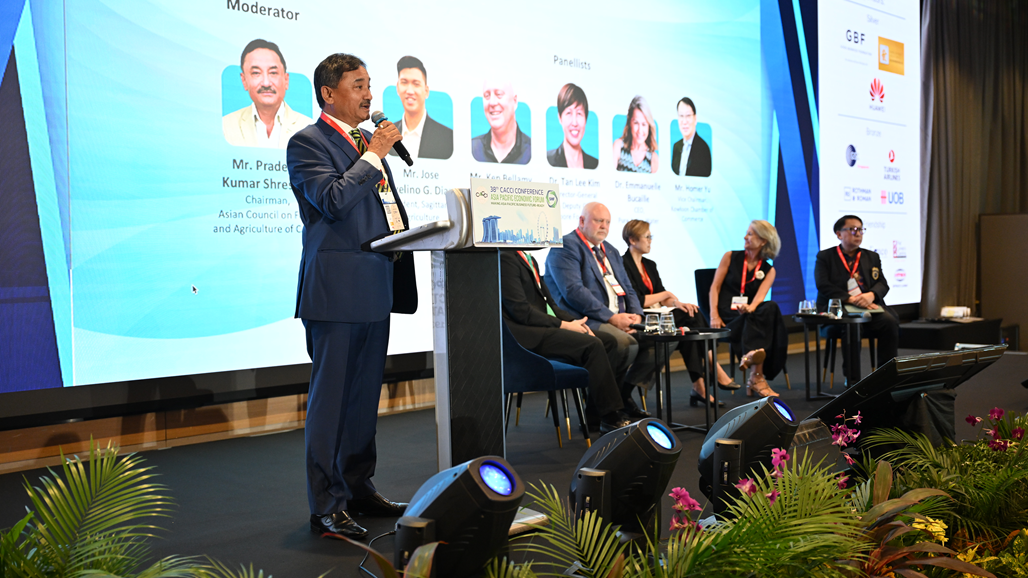
This session focused on the theme “Smart Tourism: Enhancing the Visitor Experience”. The speakers and panelists acknowledged that as the tourism industry continues to recover from the devastating impact of the Covid-19 pandemic, smart tourism is seen to play an important role in providing holidaymakers access to tourism and hospitality products, services, spaces, and experiences through ICT-based tools, thereby enhancing their experience.
The session explored the multifaceted benefits of smart tourism, including: enhanced visitor engagement through investment in smart tourism resources; improved efficiency and service provision for businesses and individuals; increased competitiveness for tourism-related businesses; mitigation of climate change effects; revenue generation; and enhanced tourist security through digital technology.
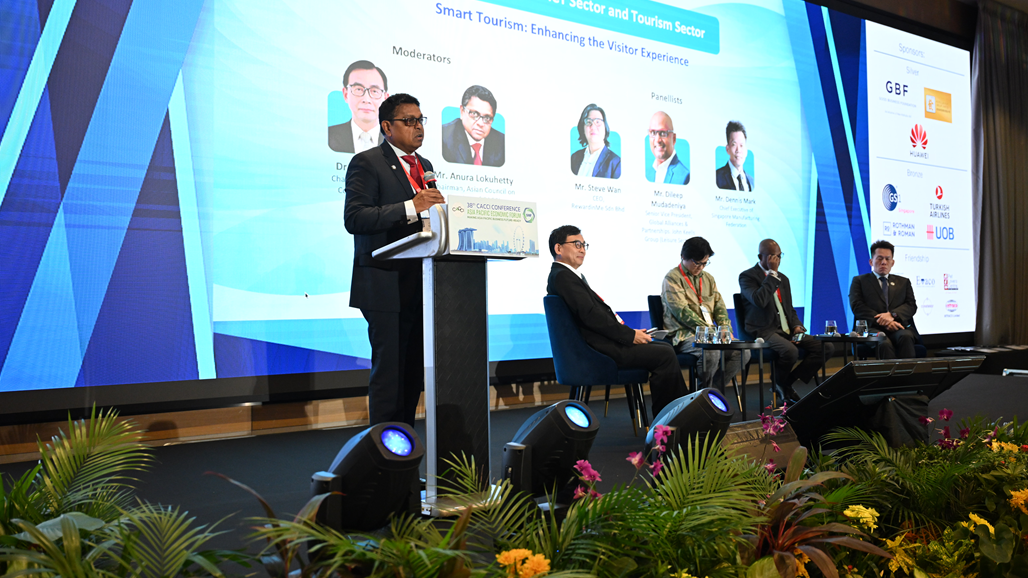
Invited speakers and panelists delved into the theme “Policy Perspectives: Driving Green Growth in Asia’s Energy and Textile Sectors,” examining strategic policies aimed at accelerating green growth within Asia’s energy and textile industries. Recognizing that the rapid expansion of the two sectors present both significant opportunities and challenges for sustainable development, panelists shared views on key policies that support the integration of renewable energy, enhance energy efficiency, and encourage sustainable textile practices.
One presentation focused on energy sector policies that promote the use of renewable energy and improve energy efficiency. Another presentation highlighted policy frameworks that foster sustainable practices in textile manufacturing, emphasizing reduced environmental impact and sustainable value chain practices. The session aimed to provide the audience the opportunity to gain a comprehensive understanding of policy tools and strategies that can drive green transformation in these critical sectors while ensuring economic growth.
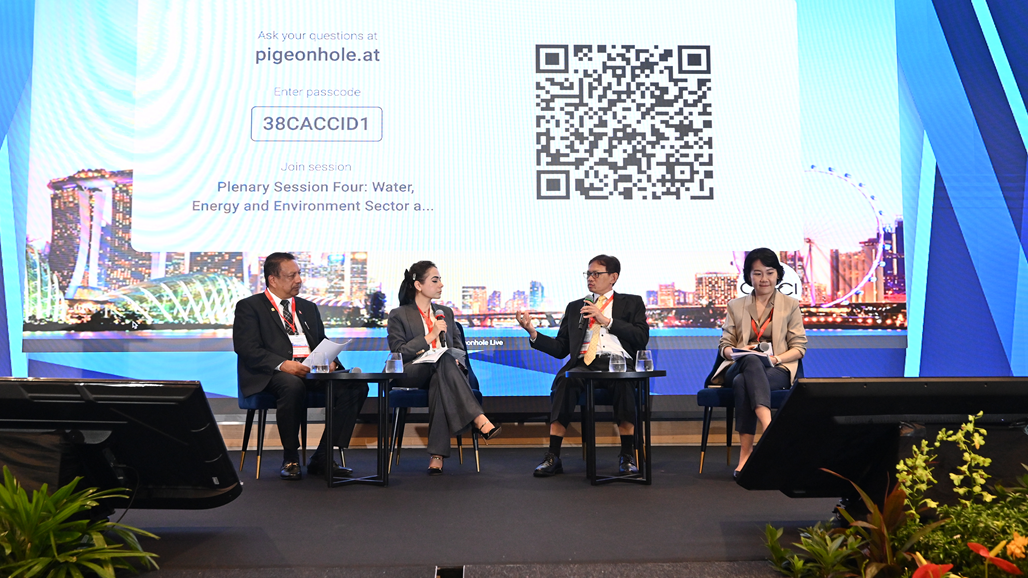
The session focused on the theme Empowering Entrepreneurs: Skills, Innovation, and Sustainability. Invited panelists recognized that the theme is relevant to both youth and women and can effectively address key areas such as resilience (under sustainability, import/export (under innovation), and the importance of skills, especially in the context of the digital age and the rise of AI.
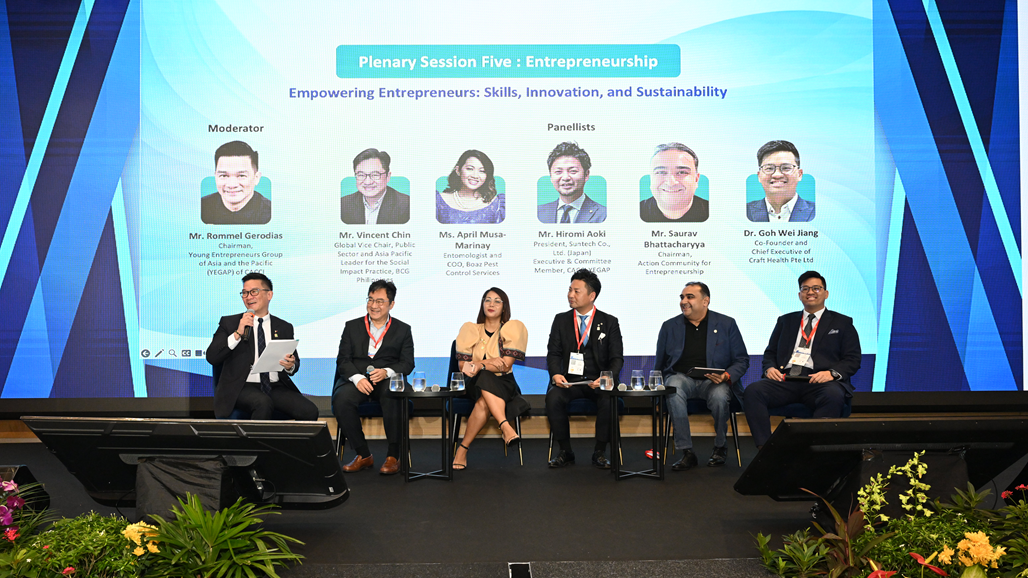
Discussion centered on the following topics.
(1) Digital Skills for the Modern Entrepreneur, focused on the essential technology skills needed for entrepreneurs in the digital age, including AI, cybersecurity, and digital tools for business growth.
(2) Cultivating Innovation in Business, explored how to foster a culture of innovation leverage emerging technology, and innovate within global markets.
(3) Building Resilience Through Sustainable Practices, highlighted the importance of integrating sustainability into business strategies, with examples of innovative practices.
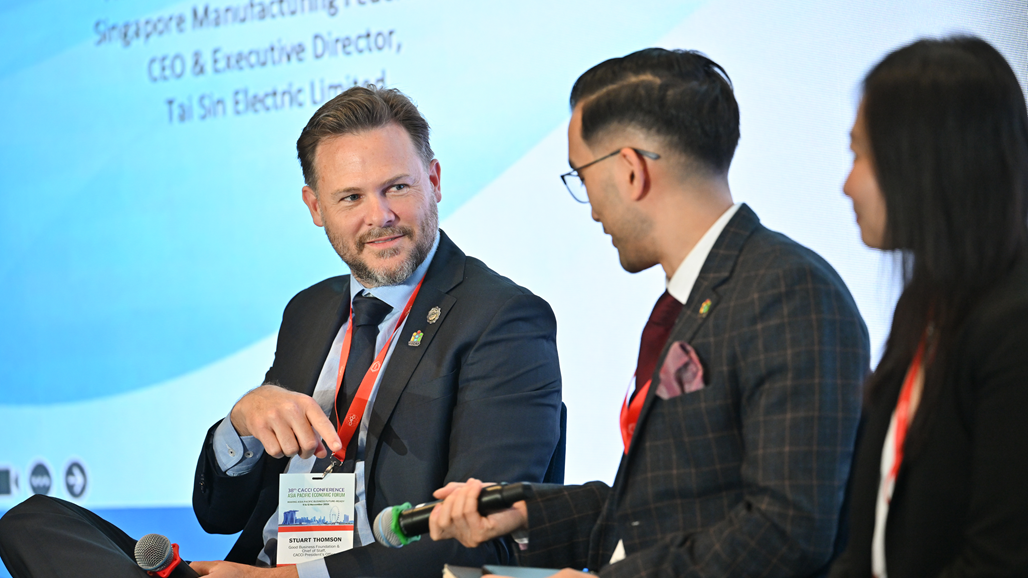
The speakers in this session discussed the results of interviews conducted among CACCI members in connection with the Asia-Pacific Green Alliance Initiative launched in January 2024 by SMF and CACCI, together with four other organizations. The Alliance aims to help SMEs in the Asia-Pacific region embark on their sustainability transformation, share best practices, develop standards, provide advisory support, offer recognition, and collectively strive toward a net-zero goal and Industry 5.0 readiness.
The primary purpose of the interviews was to gain a better understanding of the needs and challenges of SMEs in the region when it comes to transitioning their business or organizations to take on the Net Zero opportunity, as well as to obtain their insights and suggestions on how CACCI can help in this regard.
Among the major findings of the interviews included the following:
(a) Access to the right skill set and networks were noted as the biggest individual barriers. While entrepreneurs often possessed the necessary mindset and knowledge, they struggled to acquire accurate information and connect with the right people to help them.
(b) Government policy and trade were reported as the most important factors in creating sustainability practices in business.
(c) Access to innovative financing and human capital remained the core barrier for business to efficiently and effectively respond to sustainability pressures.
